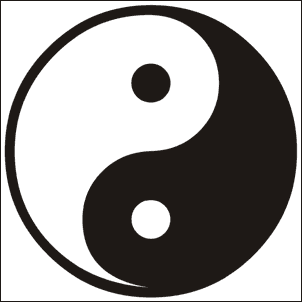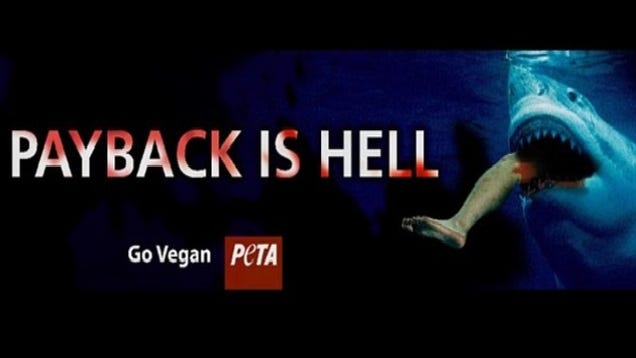When I think about comparative religions the first thing that comes to mind is that ubiquitous Co-exist bumper sticker; a slogan which implies (in essence) that all religions amount to the same thing. Interestingly, some of these bumper stickers even include ideologies that are not technically religions at all (like the symbol of sexual equality), which, I think, points to the problem of simply comparing every important idea about life to a religion. In one sense this is understandable because one's whole worldview is a kind of religion. In another sense, however, it is completely ridiculous, for it reduces religion to a mere sentiment. Thus, the flying spaghetti monster of the Pastafarians becomes as reasonable a candidate for religion as any other under this criterion. In this post I will not focus on the mockery that men have made of religion, but instead focus on those ideas that have genuine staying power; those ideas which time has apparently endorsed as authentic responses to the mystery of life. It is true that some of the following are more a matter of philosophy than religion, but due to the attention they have received over the course of time I feel it would be foolish to overlook their influence. Are all religions essentially the same? I will let you decide.
Across the Universe (Fiona Apple) - Taoism
Imagine (John Lennon) - Buddhism
To begin with, I did not use the happy fat guy as an image for Buddha, because, despite what many think, that is not in fact Buddha. The figure that individuals generally associate with Buddha is actually a figure named Budai, whose image is meant to represent contented happiness in Chinese culture (and besides, does it really make sense that Buddha would be fat? Nowhere in the Buddhist philosophy is there anything about gorging yourself). As alluded to before, the Beatles dabbled in eastern mysticism. To all appearances, both Lennon and Harrison were the ones most interested in it. Even up until the end of his life Harrison was a great proponent of "Krishna Consciousness", which is a version of Hinduism that tends towards a more personal idea of the Deity rather than the impersonal Brahmin (they are like the Hare Krishna's). On the other hand, Lennon possessed (at least for a period of time) a more Buddhistic approach to things. The first thing to understand about Buddhism is that it takes no position whatsoever on the existence of God. The aim of Buddhism is not holiness but rather enlightenment and liberation. We are not to be in the world, we are to transcend the world by emptying ourselves and annihilating any attachment to it. The best way to accomplish this, according to the Buddha (which means "enlightened one"), is not to engage in extreme fasting or penance, but to attain it through a kind of "Middle Way", or moderate approach to the world. Use the world without using it, they might say. Obviously Christians agree with this philosophy up to a point, however, most Christians do not take such a throughly negative view of the material world. From a Christian point of view, the aim is not to regard the world as simply a lie and an illusion, but as something good that has been misused and perverted. The Christian is not so much to transcend material attachment as he is to restore it to its original meaning. The following song (and video) I believe captures the distinction I have attempted to make between the two. Indeed, in a certain sense there can really only be one Buddhist song, for the aim of Buddhism is to reduce to "nothing" all that we regard as something in the world.
Bullet with Butterfly Wings (Smashing Pumpkins) - Hinduism
Hinduism is more like a religion than Buddhism. However, one might also argue, as did the Buddha, that in some ways it is far too religious. What I mean is that Hinduism is/was a tangle of any number of mythologies which aren't necessarily consistent with one another. This is no doubt due in part to their syncretistic view of religion. In fact, they are really the only world religion that regards (up to a point) all religions as valid paths to God and/or enlightenment. From a contemporary standpoint, this is a very appealing position to take, and if we were talking about our favorite colors or preferred ice cream, I would be right there with them. But what we are talking about here is the meaning of our existence, not what appeals to us in a superficial way. So, for example, I do think it matters whether or not the material world is an illusion or whether it is real. I do think that it matters whether or not the body is a good thing, or essentially amounts to a disposable napkin. And I do think that it is valuable to distinguish between belief in a god like Kali (the Hindu Goddess of Destruction as pictured above) or one that is more like Jesus. These are undeniably valid questions and simply reducing them to a matter of personal disposition, doesn't get us anywhere. The song I have selected does not encapsulate all of the spirit of Hinduism. After all, Hindus believe in benevolent deities as well as wicked ones (but then again so did the Greeks). Even so, I do think that this Smashing Pumpkins song does embody in a general way their philosophical worldview. When it comes to humanity, one thing is certain, everyone that is alive is subject to an endless cycle of suffering and decay, which, for a Hindu, is a just reward for karmic ignorance. According to Hindu belief, this karmic punishment will play itself out over countless lifetimes (perhaps millions), ceasing only when one fully comes to the recognition that we are not, and that there is no "I" in I. At this point, assuming one is fully enlightened, one then returns to the indistinguishable impersonal sea of being known as Brahman. From their point of view, we don't need to be saved so much as realize that we are Brahmin. In an odd sort of way, grunge is the perfect medium for this kind of spiritual cynicism. Whether it's Nirvana (a very Hindu/Buddhist name), Alice in Chains, Smashing Pumpkins, or any other band of this ilk, what they all seem to have in common is a great love affair with death and despair. In "Bullet with Butterfly Wings", Corgan declares that the "world is a vampire... sent to drain." Indeed, even the guitar hook has a kind of circular hamster wheel-like quality to it. And appropriate to the spirit of re-incarnation, there are several points in the song in which Corgan describes himself as little more than an "animal" or a "rat" in a cage. Ironically, he does compare himself in the song to the Old Testament figure Job (poor little Corgan), though I would argue that what he describes is more of a Hindu-like Job, than one looking to be consoled by the God of Israel.
Desert Rose (Sting) - Islam
The last three religions on this list technically derive from the same origin. In other words, all three worship the God of Abraham. However, that is precisely where they all diverge. Islam believes itself to be a restoration of the Abrahamic faith; a return to the old religion. In certain ways Muslims do share many similarities with the Christian and Jewish faith. Yet in its attempt to go backwards, there really is an element within Islam that is redundant. You could argue that some of this "redundancy" is necessary, but you cannot say that Islam originates it. Mohammad is the final prophet, but Islam offers no Messiah to look forward to, only the promise of a return to the tribal world of Abraham. Subsequently, what results in Islam is not a greater intimacy with God, but simply a reestablishing of the yawning chasm that exists between God and man. Muslims do not deny this fact, for when they talk about the afterlife it does not involve, like the Christian, a face to face encounter with the Deity. God is so far beyond our comprehension that the just man can only go to a kind of earthly paradise, while the divine abode is forever inaccessible. In many ways the music of the Middle East seems to echo this sentiment. And while I would never dare pretend to be any kind of expert on music in that region of the world, the music that I have heard has a very distinct character to it. When I listen to it I cannot help but to think of desert convection and the burning hot son looming high above me, relentless, like some divine drill sergeant. Perhaps this is what inspired Sting to hire Cheb Mami to sing a song about longing for a garden in the desert. I'm not a huge fan of this glorified car commercial, however, I always listen to it if only to hear Mami do his classic middle eastern chant. Vocally, it is one of the more odd forms of vocalizing. Unlike most singing in the West- where the vocals proceed outward from the throat- this form of singing involves an eerie kind of swallowing of the notes. It sounds to me like someone falling into a bottomless pit, or someone reaching upward towards a God that is forever retreating from him. Haunting is the only word to describe it.
Alleluia (Leonard Cohen) - Judaism
Though Leonard Cohen claims to be a Buddhist, his poetical instincts are more reminiscent of his Jewish heritage. Of the monotheistic religions, Judaism is the only one that can rightly claim to be the spiritual father of them all. Nevertheless, Judaism is in many ways a cliffhanger without a next season, a verse without a chorus, a joke without a punchline. By its own admission it is a religion that is yet to be fulfilled. For Jews, the Messiah has not yet come. What is most interesting to me about Judaism is how it maintains an intimacy with God (especially in the Psalms) while at the same time preserving the infinite disparity between the two parties. The song Alleluia embodies this spirit of Judaism well. If I were to compare it to a hymn I would compare it to "Oh Come Oh Come Emmanuel". The song offers hope, but it is a very muted hope. Indeed, the "rejoice rejoice" feels more like melancholy than enthusiasm. There may be joy awaiting you, but it is not yet here. Both the lyrics and the music embody the aforementioned spirit. The first two verses are about David and the tragic manner in which he "achieves" his Alleluia. The verses that follow shift their attention to the songwriter, who also discovers that love is not always a "victory march", but rather a "cold and broken" Alleluia. The music itself builds as it reaches the chorus, but when the chorus arrives, the music descends as opposed to ascending. Just as in "Oh Come Oh Come Emmanuel", the moment when the words are most uplifting is precisely the moment when it becomes most somber and mournful. Redemption is on the way, but redemption has been delayed, and until it arrives our Alleluia can only be one of longing and anticipation.
In Your Eyes (Peter Gabriel) - Christianity
The primary contention of the Christian Faith is not that man has found God through his philosophical formulations, but that God, through a remarkable act of self-abasement, has condescended to find us and lift us out of our own basement. God in former times made a promise to save his people, and that same God delivered on the promise in the person of Jesus Christ. The longing that was found in the "verse" of the Old Testament, has its fulfillment in the "chorus" of the New Testament. Perhaps this is why it is the only religion that demands that its followers spread the message, for it is not so much a philosophy, as it is an announcement; "Ding Dong the Witch is Dead!" The truth is philosophies are great, admonitions are wonderful, but when you're down in a black pit of misery you really don't want either; you want to be saved. Whether or not you actually believe that Christ saves is another matter, though I do think it is important to note that he is the only founder of a religion that claims to accomplish this. It is also worth noting that the whole idea that music should reach some kind of resolution, or have a specific narrative arc, is something that finds its roots in the Christian West. For example, if you look at most world music it is more dedicated to a feeling, or an atmosphere, rather than a specific story that has a beginning, middle, and end. By contrast, when we look at music in the West, we see all sorts of examples of this- in opera, classical, and contemporary music. In Your Eyes embodies this Christian spirit in an undeniable way. The verses are a bit somber and melancholic, though never in a despairing way; "Love, I get so lost sometimes. Days pass, and this emptiness fill my heart... I get so tired working so hard for our survival. I look to the time with you to keep me awake and alive." In essence, the verse describes man in his attempt to climb the mountain of God and persevere amidst every manner of uncertainty. However, unlike in the previous song, his perseverance is not met with a distant hope that his suffering will eventually amount to something beautiful. No, his prayer, if you will, is answered. The chorus is truly a release and a resolution in both a musical and lyrical sense; "In your eyes, the light the heat, (your eyes) I am complete, (your eyes) I see the doorway to a thousand churches, (your eyes), the resolution of all the fruitless searches." Indeed, this talk of feeling "complete" and of "resolution" is both the point (and the joy) of the Christian Faith (not to mention the point and pleasure of the song). We all love a good chorus, but a chorus without the necessary build up is a bit anti-climatic. And in the same way, Christ's coming without the requisite ache of Israel would have had the same practical effect. Interestingly, at the end of the Peter Gabriel song, he introduces African tribal chanting which gives the song an ancient, if mystical, quality. The sentiment he is trying to express at this point is meant to go beyond words. This is important in the context of what the Christian Faith says about other religions, for it does not reject anything that is true in them. To the contrary, she seeks to give greater meaning and context to the wisdom and insight that men have gleaned throughout the ages. Thus, the song embodies what is true and beautiful about the Christian faith, while at the same time affirming the natural instincts and insights of men. As for chant itself, it truly embodies a timeless quality, but since the Christian Faith is also a religion rooted in time, it is most appropriate that both sentiments get a hearing.



















